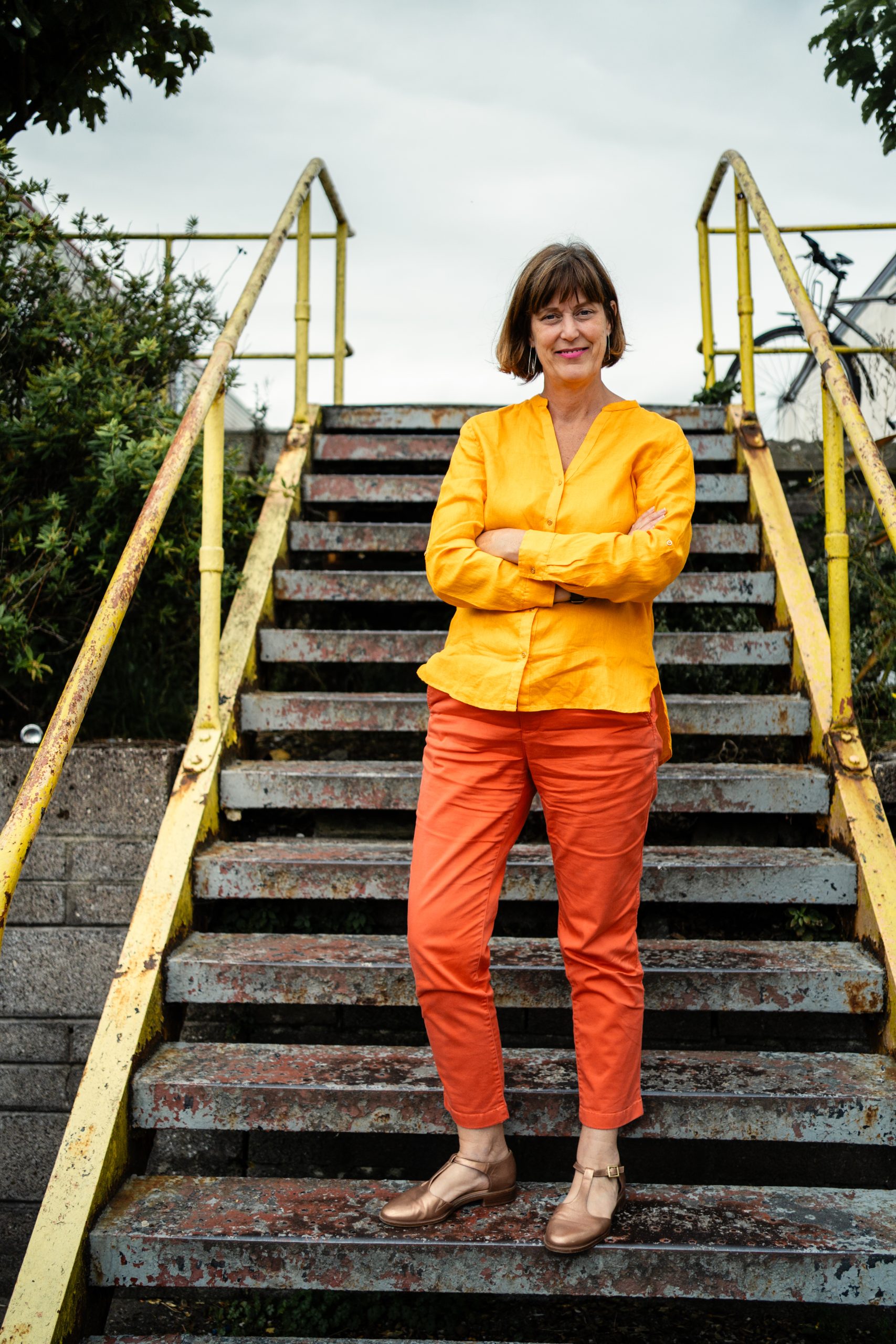The sharp end of inequality – why Ireland needs to get serious about inclusion

Imagine a world where people with disabilities run the country. Where they hold all the positions of power. Taoiseach, Government Ministers, media producers and journalists, judges, company CEO’s, trade union leaders, social media influencers, buyers in our favourite shops, car, bus and train designers, police… They make or shape all the decisions and we have to live by them.
What would life be like? Would it be harder, because the world was designed to suit someone else? Or easier, because it is designed for everyone?
In Ireland in 2023, people with disabilities experience higher rates of poverty, social exclusion and discrimination than others. They face systems – education, transport, buildings, and so on – that were not designed to accommodate all people. The effect is that they are disabled not by their own disability or health condition, but by barriers that we have created in society. In Census 2022, over 1.1 million people reported experiencing at least one long-lasting condition or difficulty – that’s 22% of the population.
So, isn’t it time that we prioritised true equity and inclusion for people with disabilities in Ireland?
In March 2018, Ireland ratified the UN Convention on the Rights of Persons with Disabilities, known as the UNCRPD. This ‘ratification’ meant that Ireland made a commitment to protect and promote the rights of people with disabilities, on an equal basis with other people who do not have a disability. As the United Nations explains, the UNCRPD ‘…takes to a new height the movement from viewing persons with disabilities as “objects” of charity, medical treatment and social protection towards viewing persons with disabilities as “subjects” with rights, who are capable of claiming those rights and making decisions for their lives based on their free and informed consent as well as being active members of society.’
However, five years on from this pledge, evidence suggests that people with disabilities in Ireland continue to encounter significant obstacles and difficulties when claiming those rights. A recent report from the European Disability Forum highlighted how this country has the worst employment rate in Europe for people with disabilities, with less than a third employed. What’s more, if I have disability, I am likely to earn less – while life costs me more than everyone else. ‘The Cost of Disability in Ireland’ report of 2021 highlighted that the additional, individual cost of disability ranged between €8,700 and €12,300 per annum for things like transport, communications, equipment and appliances – costs that others in society do not have to pay. That’s how much extra I would have to earn, just to stand still. A high price indeed.
Until people with disabilities do run the world, how can we get closer to this idea of universal design for everyone? We must embrace a diversity of voices and opinions, through proper consultation at all levels of decision making. This is an opportunity to think differently and seek to guarantee that our children and grandchildren do not have to face the same struggles. We all know by now that diverse teams make better decisions and produce better results, so it makes business sense, too. But ultimately, we know that inclusion is simply the right thing to do.

If we are to have the kind of just transition that the continued success of our planet demands, then decent work, social inclusion and the eradication of poverty need to be at the forefront of this. But in a world of multiple crises, our traditional institutions have often failed to offer effective solutions. Social innovations, by their very nature, can and do provide those solutions by addressing acute needs and tackling societal challenges in new ways.
Social innovations are regularly led by people who have a strong personal connection to the issues they are aiming to overcome. They often act at a local level, empowering people with lived experiences and those who feel passionately about the success of their communities. They are equitable, investing in talent regardless of background or (perceived) ability. They encourage responsible consumption and growth, and stimulate our economic development. They create jobs.
This year, we in Rethink Ireland were pleased to partner with the Department of Children, Equality, Disability, Integration and Youth, to create the €3 million Disability Participation and Awareness Fund. The Fund has three goals: 1) to build skills and remove barriers to help people with disabilities take part in their communities; 2) to provide valuable employment experience to people with disabilities; and 3) to support the overall participation of people with disabilities in local activities, in line with the implementation of the UNCRPD.
In November, we announced the 20 projects that were successful in securing these funds. They span four strands, including building skills and removing barriers for people with Down syndrome, social enterprise initiatives that provide employment experience for people with disabilities, arts & cultural institutions that support the participation of people with disabilities and promote awareness of their lived experiences, and sports and outdoor recreation activities that encourage participation as well as the promotion of accessible shared spaces.
Let’s come back to what great looks like. With support from this Fund, Dance Cork Firkin Crane will run ‘Inclusive Dance Cork’, a 5-day, intensive dance training programme for dancers with disabilities or without them, offering a universal and fully inclusive experience of dance training. That is what universal design for learning looks like. That is what inclusion looks like.
People with disabilities have a broad diversity of identities and experience. Why wouldn’t they? We want to see people with disabilities in every aspect of public and community life. This means participation in work and politics, but also in arts & culture, in sports, enjoying public spaces and making the kinds of social and romantic connections that are vital to our health and wellbeing. In short, we want to see people with disabilities enjoy the same rights and privileges that everyone else does.